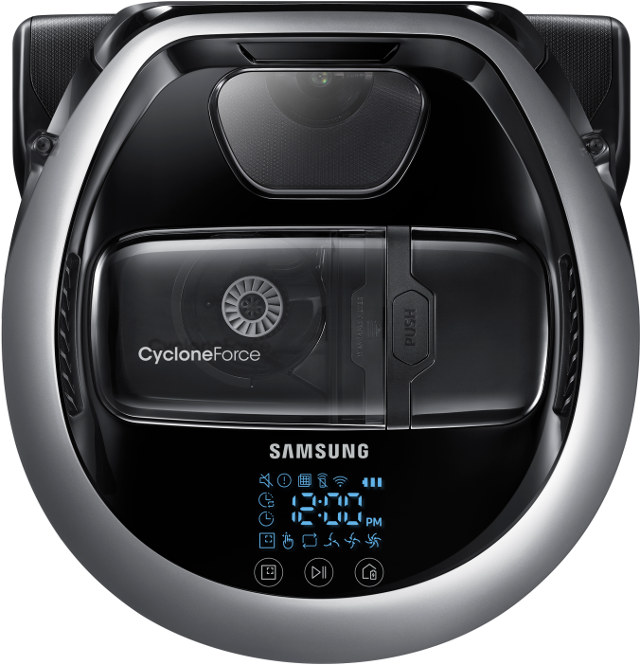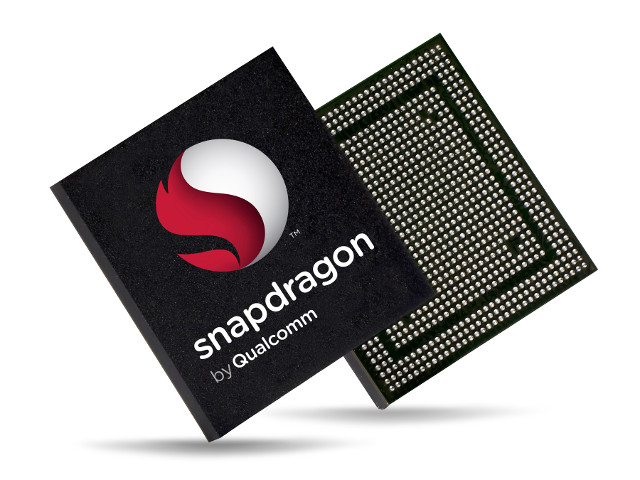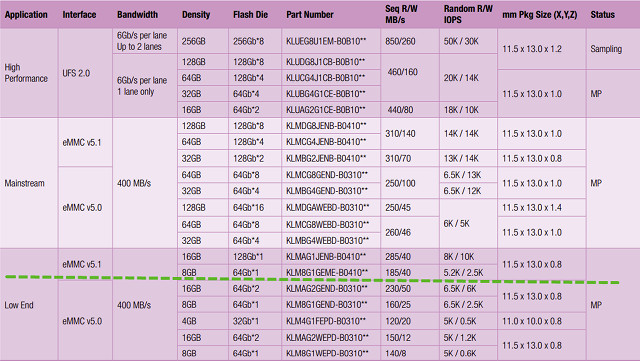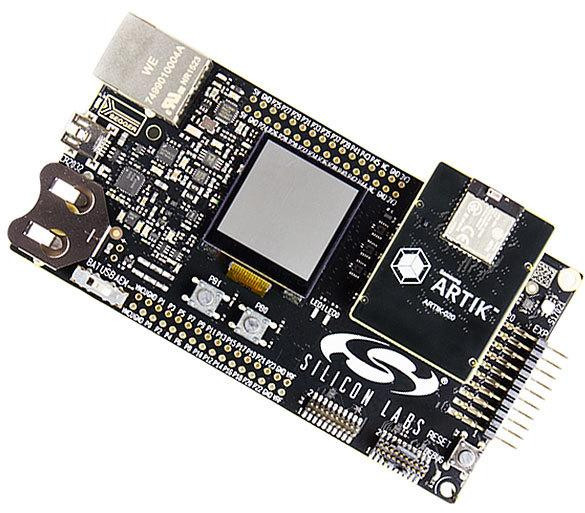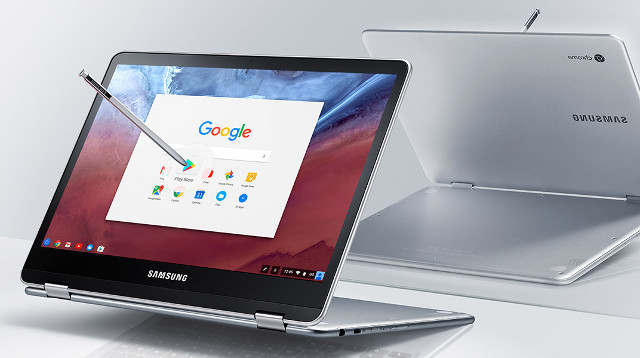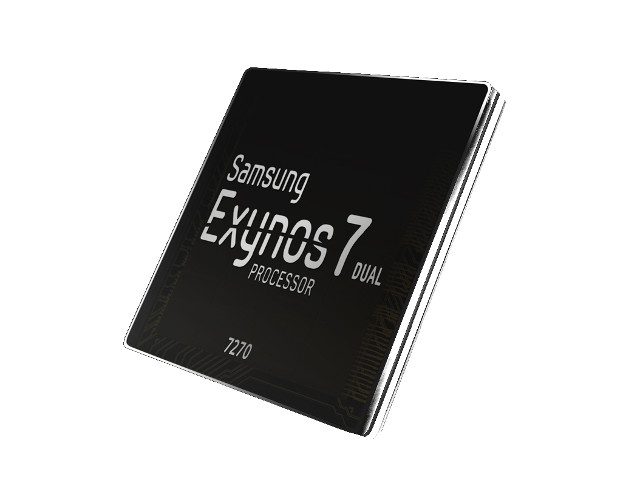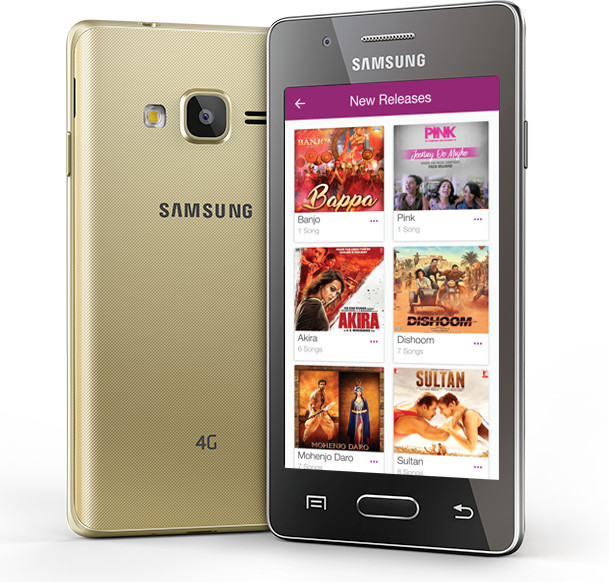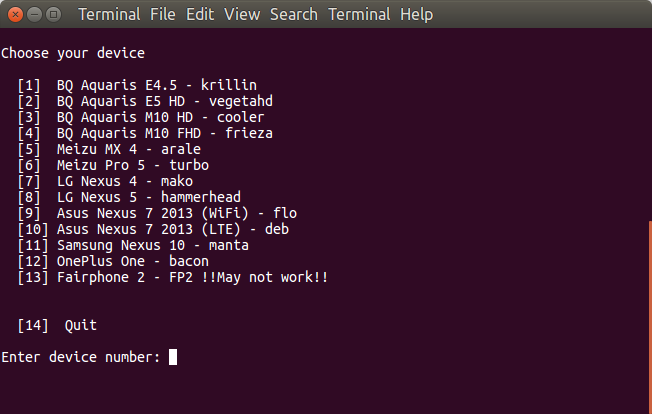2017 is the year where the future starts. You’ll be wandering in your automated home or office where lights and heating system are fully handled by a gateway taking into account sensors values, and equipped with a CO2 level controlled ventilation systems, your eyes constantly looking at your phone, wearing neckband speakers likely connected to your Amazon Echo to let you know when it’s time to get up, eat, go to work, brush your teeth, and get back to bed again. All your life will be taken care of on your behalf by the Internet of Things, relieving you of the stress of taking routine daily decisions… Luckily, you’ll still be have an illusion of control thanks to your “IoT-ready” Samsung POWERbot VR7000 vacuum cleaner that can be controlled with your voice via that Echo thing, giving your life a purpose. Samsung Electronics’ latest POWERbot vacuum cleaner will be unveiled […]
Qualcomm Snapdragon 835 Mobile Processor To be Manufactured with Samsung’s 10-nm FinFET Process technology
Qualcomm Technologies and Samsung Electronics have jointly announced that the upcoming Qualcomm Snapdragon 835 processor for mobile devices will be manufactured using Samsung’s 10-nanometer (nm) FinFET process technology. Sadly, neither companies provided further details about the processor itself, but they did offer some insights in the performance and power efficiency improvement between 14nm and 10nm processes with Samsung’s 10nm technology allowing up to a 30% increase in area efficiency with 27% higher performance or up to 40% lower power consumption. Snapdragon 835 is said to be in production now with commercial devices featuring the new processor expected in H1 2017. Jean-Luc Aufranc (CNXSoft)Jean-Luc started CNX Software in 2010 as a part-time endeavor, before quitting his job as a software engineering manager, and starting to write daily news, and reviews full time later in 2011. www.cnx-software.com
Samsung eMMC and UFS 2.0 embedded Flash Chips and Performance in 2016
Samsung does not always keep up its website up-to-date when it comes to its embedded flash chips, and performance metrics such as sequential read/write and random read/write values are not shown for all devices. The former is mostly important for data storage, while the latter may make a big difference for the operating systems responsiveness, and applications that rely on many short write and/or read operations. A table with the latest Samsung eMMC 5.0/5.1 and UFS 2.0 chips, and performance metrics somehow dropped in my computer. The company offers low end eMMC 5.0/5.1 flash with capacities between 4 and 16 GB with performance up to 285/40 R/W MB/s and 8K/10K R/W IOPS, mainstream chips between 32 and 128 GB delivery up to 310/140 MB/s and 14K IOPS, and all UFS 2.0 device are faster than any of the eMMC flash (limited in theory to 400 MB/s) with capacity between 16GB […]
Samsung Introduces $5 ARTIK 0 and $50 ARTIK 7 Smart IoT Module Families
Samsung unveiled ARTIK 1, 3 and 5 boards for the Internet of Things in 2015, and started to sell them, together with development with WiFi, BLE and Zigbee connectivity earlier this year. The Korean company has now announced two new family with ARTIK 0 modules powered by an ARM Cortex-M MCU and destined to be used in HVAC, lighting, industrial sensors, personal health monitoring and more, as well as ARTIK 7 family powered by an Octa-core Cortex A53 processor, and targeting IoT gateways. ARTIK 0 Family ARTIK 0 family is now comprised for ARTIK 020 with Bluetooth, and ARTIK 030 for applications requiring Thread and/or Zigbee. Beside the different radios, both modules share the same key features: MCU – ARM Cortex-M4 up to 40 MHz with Floating Point Unit, 256KB flash, 32 KB SRAM, advanced hardware cryptographic engine with support for AES-128/-256, ECC, SHA-1, SHA-256, and a Random Number Generator […]
Samsung Chromebook Pro Powered by Rockchip RK3399 SoC to Sell for $499
Considering Linux kernel commits related to RK3399 processor almost always involves developers with a chromium.org email address, beside rock-chip.com ones, we had to expect a Rockchip RK3399 based Chromebook sooner or later, and based on various leaks, Samsung Chromebook Pro appears to be one the RK3399 Chromebooks to come to market very soon. We’ll see some of the key features and pictures, and technical details on websites such as Adorama, so we can have a pretty good idea of Chromebook Pro OP1 / 513C24I specifications, even though Samsung and Google have yet to officially launch the device: SoC – Hexa core processor with 2x ARM Cortex A72 cores @ up to 2.0 GHz, 4x ARM Cortex A53 cores (Which has to be Rockchip RK3399 SoC, or a special RK3399-C specific to Chromebooks) System Memory – 4 GB LPDDR3 RAM Storage – 32 GB eMMC Flash Storage Display – 360°-rotatable 12.3” LED […]
Samsung Starts Mass-Production of Exynos 7 Dual (7270) Processor used in Galaxy Gear S3 Smartwatch
Samsung has just issued a press release announcing the Korean company had just started mass-production of the first SoC for Wearables using 14-nm FinFET process with their Exynos 7 Dual (7270) dual Cortex A53 processor. Exynos 7270 is also said to be the first such SoC to embed full connectivity and LTE modem integration. Exynos 7270 specifications: CPU – Dual-core ARM Cortex–A53 processor @ up to 1.0 GHz GPU – ARM Mali-T720 Memory – LPDDR3 support Storage – eMMC 5.0, SD card interfaces Display – Up to 960×540 (qHD) resolution Camera – Up to 5MP pixel sensor support Multimedia – HD (720p@30fps) video with HEVC, H.264, VP8 Codec LTE Modem – LTE Category 4 non-CA Connectivity – WiFi, Bluetooth 4.2, FM Radio GNSS – GPS, GLONASS, BeiDou PMIC – Integrated in SiP-ePoP package Package – SiP-ePoP, 10x10mm (SiP: System-in-Package; ePoP: embedded Package-on-Package) The SoC will be packaged inside a SiP-ePOP […]
The First 4G Tizen Smartphone, Samsung Z2, To Launch in India for $68
After Samsung Z1, and Samsung Z3, Samsung defied “mathematical incrementation wisdom”, and launched Samsung Z2 Tizen smartphone, which happens to be the very first Tizen phone supporting 4G networks. Tizen Z2 is definitely an entry level smartphone as the specification show: SoC – Spreadtrum SC9830i quad core Cortex A7 processor @ 1.5 GHz with Mali 400MP2 GPU System Memory – 1GB RAM Storage – 8GB flash + micro SD slot up to 128GB Display – 4″ WVGA TFT display Cellular Connectivity – 4G LTE Cat.4 Camera – 5MP rear camera with LED flash, 0.3MP front camera Battery – 1,500 mAh battery The device caters to the Indian market with Samsung’s ‘Make for India’ features such as the “Ultra Data Saving mode, S bike mode and the new My Money Transfer”. The phone also includes a preview version of Jio services to access music and videos on demand. Samsung Z3 will be […]
Magic Device Tool Helps You Switch Between Android and Ubuntu on Supported Phones
There have only been a few phones released with or supporting Ubuntu so far, and those phones will normally be able to run Android too since Ubuntu Touch relies on Android drivers, and you may decide that Ubuntu is not for you and switch back to Android, or the contrary, if you’ve purchased an Android phone, you may want to install Ubuntu instead. In order to simplify the task of installing operating systems, Marius Quabeck has developed “Magic Device Tool“. As you can see from the screenshot above, 13 phones and tablets are currently supported. You’ll need a computer with Ubuntu 15.04 or greater to install the tool, and I’ve done so on Ubuntu 16.04:
|
1 2 3 4 |
git clone https://github.com/MariusQuabeck/magic-device-tool.git cd magic-device-tool chmod +x launcher.sh ./launcher.sh |
The script will also install phablet-tools if it is not already installed, so if you are not root, you’ll need your account to be member of sudoers. Once the initial setup is done, you’ll […]


